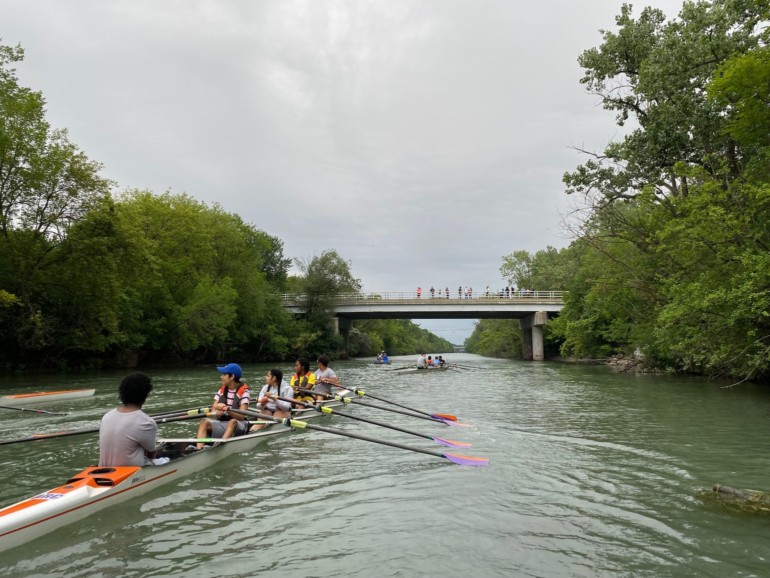Alex Roman’s mom picked him up from school one afternoon in seventh grade and had some news.
“She said, ‘I just signed you up for rowing,’ and I was like, what?” Alex recalled. “I didn’t know anything about the sport. The first thing I thought was, that’s a sport with a lot of rich, white people.”
He’d made a valid observation, which was part of the reason Alex’s mom had registered him for rowing at the Chicago Training Center, a nonprofit that uses the sport to create opportunities for diverse young residents of the city. Earlier that day, two CTC coaches had visited the elementary school where Alex’s mom taught. She mentioned Alex.
Established in 2006 to reach at-risk kids, CTC is one of a growing number of organizations across the country — including a new initiative from rowing’s national governing body — seeking to open the benefits of the sport to people who traditionally wouldn’t be associated with it. People like Alex, who is of Puerto Rican descent and lives on Chicago’s southwest side.
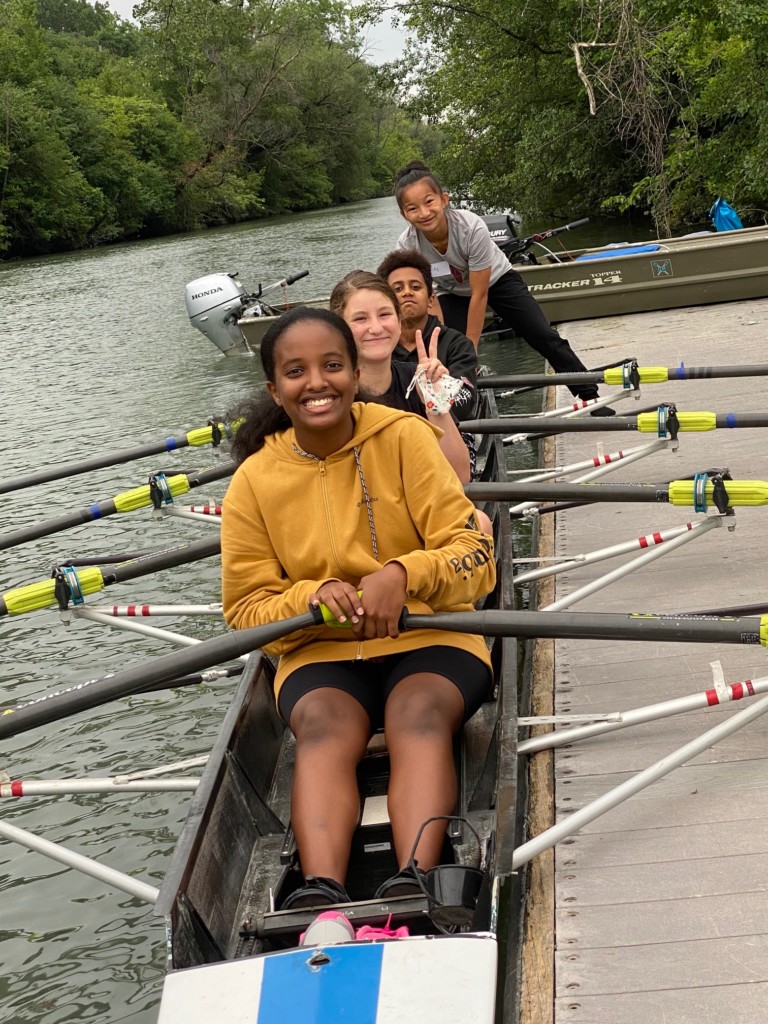
“There’s a lot of really good momentum now,” said Amanda Kraus, executive director of USRowing. In 2002, Kraus established Row New York, a nonprofit that uses rowing to strengthen academic achievement among underrepresented youth.
“It really took — unfortunately — what happened in this country in the summer of 2020, with all the social unrest, for there to be a sort of collective awakening in the sport,” Kraus said.
Now, she said, she’s hopeful.
“I think the desire is there around so many programs — collegiate programs, junior programs and clubs,” Kraus added. “They just haven’t had the support in the past.”
USRowing is taking action to change that. In October, it established a partnership with STEM to Stern, a nonprofit started in Milwaukee that emphasizes increased diversity in rowing and STEM education. STEM to Stern now is a program of USRowing, which will drive funding and help expand the program to clubs across the U.S.
“We’re starting with our very youngest rowers — middle schoolers — to really change the pipeline so it starts to reflect the diversity of this country,” Kraus said shortly before announcing the partnership. “It’s a long-term plan and a long-term investment, not a splash and dash.”
From Novice to Coach
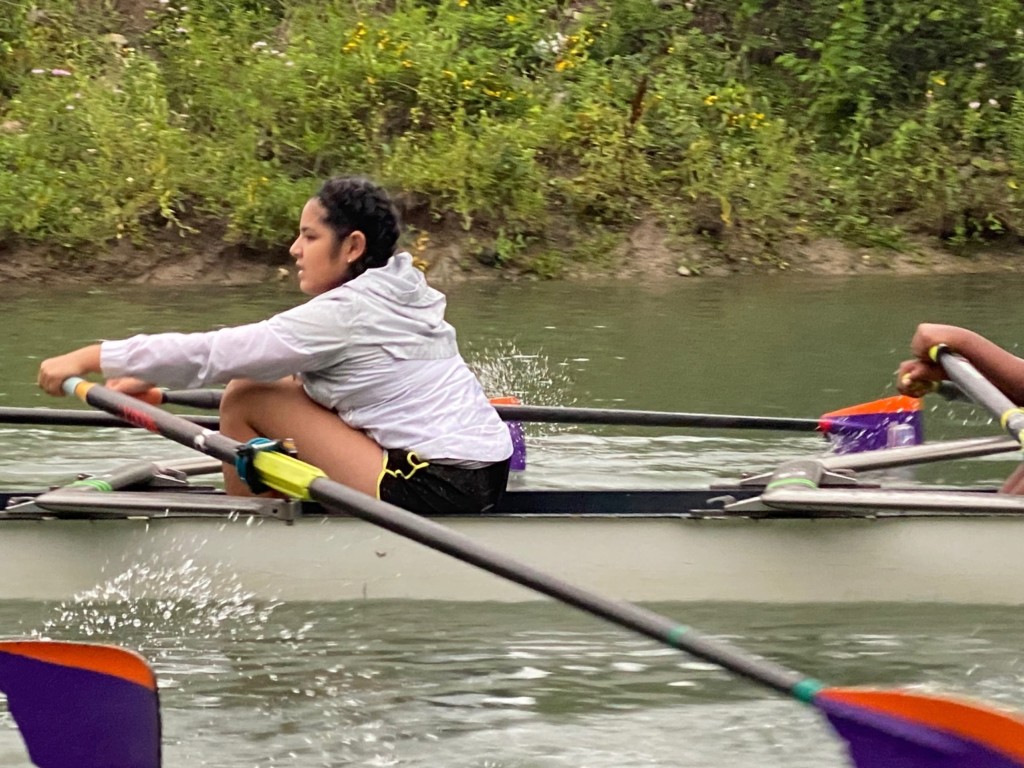
Alex’s experience exemplifies how rowing becomes a powerful force in a young person’s life.
By the end of his first practice with about 50 kids who, like him, were mystified by the sport when they arrived, Alex was hooked.
“It was all new to me, and we were all learning together,” he recalled. “It was kind of like everybody building each other, sharing what they learned. That was really awesome.”
He stayed with CTC, based in Chicago’s Bridgeport neighborhood, through middle and high school, competing in about 100 races and 40 regattas. It helped him learn important lessons of sport — discipline, teamwork, and camaraderie, not to mention how to fix a boat — and enabled him to travel to places he never would have seen, meet people he never would have met.
His rowing experience also contributed to his earning a college scholarship through POSSE, a national organization that’s diversifying the demographic mix of students at top universities.
Now a senior at University of Wisconsin-Madison, Alex is a CTC coach.
“I had a ton of fun,” he said. “Now, I realize how much CTC has impacted my life, and I want to make sure I can give that to someone else.”
‘Agent of Change’
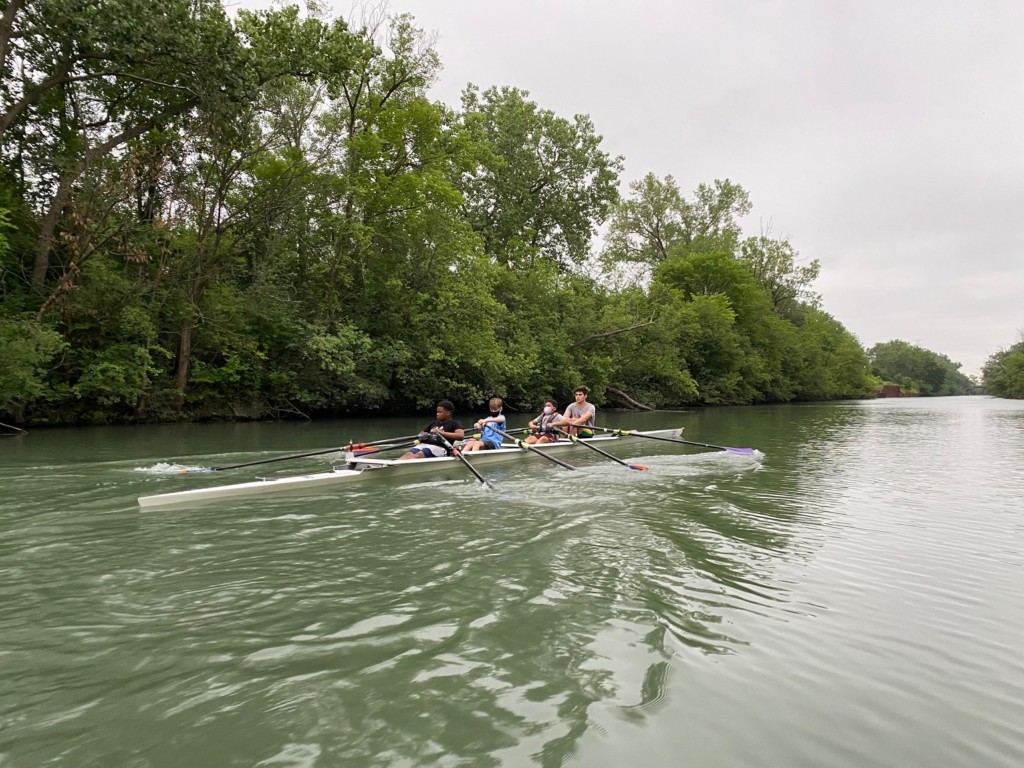
About 14 miles north of CTC’s boathouse, longtime New Trier High School rowing coach Michael Wyman and his colleagues at the school, like millions of others, were compelled to act after the murder of George Floyd by a Minneapolis Police officer in May 2020.
They used their sport as a catalyst for change by creating North Channel Community Rowing, an all-volunteer group that, as its website states, is “committed to supporting diversity and access to the sport of rowing through youth programs targeting under-represented students” in Evanston and Skokie.
After robust funding support from the New Trier community and elsewhere, NCCR presented its first camp in July at Dammrich Rowing Center on the Evanston-Skokie border. A total of 36 middle schoolers participated in the week-long camps. Another 23 registered for fall training sessions.
“We don’t want to be just a rowing organization,” Wyman said. “We want to be an agent of change for these kids.”
Philanthropist Elizabeth “Liza” Yntema, an ardent advocate for girls’ and women’s rights, has long supported rowing as “a superhighway to success,” and works to expand the sport to diverse communities. She also supported NCCR, which she said has been extremely thoughtful in its approach.
“What really impresses me about NCCR is their respect for the sport and those they seek to serve, demonstrated by their willingness to learn and work with the community on a really deep level,” she said. “That takes time.”
Anecdotal evidence supports Yntema’s assessment of NCCR.
“My experience in rowing was AWESOME!” a girl camper wrote in a letter to NCCR this summer. The teachers “are really nice and funny,” she said, adding that she hopes NCCR will grow to introduce more kids to the sport.
“I want to become better in rowing,” she added, “because I want to become a counselor to help other kids and have fun.”
Venerable, 111-year-old Lincoln Park Boat Club also is taking steps to open the sport to more diverse participants. LPBC for years has offered financial aid to rowers. In May, the nonprofit opened a boathouse on the North Branch of the Chicago River in the Lathrop housing development — once a public housing complex, now a mixed-income neighborhood.
In August, LPBC created a middle school and high school rowing team free to all young residents of Lathrop, boat club President Trish Brubaker said. Participation has been low, but Brubaker is planning more robust marketing.
“We definitely have this hurdle,” she said. “We need to convince them that the sport is for them. We’re having fun trying to solve the problem.”
Reliability, Responsibility, Trauma Therapy
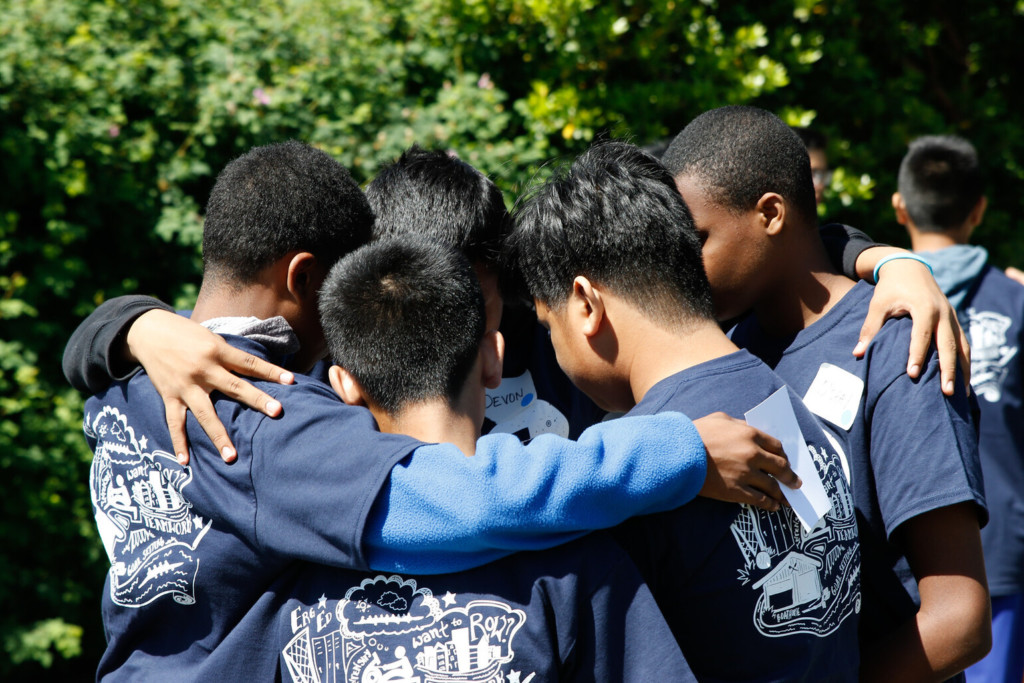
Other organizations considered models of rowing diversity include Community Rowing Boston, Baltimore Community Rowing, and Philadelphia City Rowing.
Chicago has its own distinction in the movement. The city was the setting for the acclaimed 2020 book and documentary, “A Most Beautiful Thing,” which tells the true story of the nation’s first Black high school rowing team — a group from Chicago’s West Side, some of whom were in rival gangs.
The book’s author, and rowing team member, Arshay Cooper, now works as the national inclusion director for the George Pocock Rowing Foundation, which last year established A Most Beautiful Thing Inclusion Fund, designed to bring rowing to a more diverse audience.
“The biggest lesson I learned in rowing is that we need everyone,” Cooper said in the organization’s announcement of his appointment. “We need these clubs to open their doors to everyone because talent is everywhere, but access and opportunity are not.”
The Pocock Foundation, based in Seattle and considered a national model in rowing diversity, has another Chicago connection. Executive Director Jenn Gibbons co-founded Recovery on Water, a Chicago-based nonprofit rowing team for breast cancer patients and survivors, before taking the Pocock position.
A former collegiate rower and high school coach, Gibbons became Pocock’s executive director in May 2020 and is convinced rowing can offer important lessons — reliability and responsibility, among others — and be therapeutic to a variety of people, particularly youth from historically disadvantaged communities who may have experienced significant trauma.
Apart from the sport’s obvious exercise benefits, rowing’s repetitive nature provides rhythmic movement and relief from stress, Gibbons said. Performing that exercise on the water is another plus.
“Their regular proximity to the water has been shown to have a profound calming effect,” she said. “Multiple studies have proven this environment can help relieve anxiety and depression and mitigate the effects of traumatic experience.”
In Pursuit of Recovery
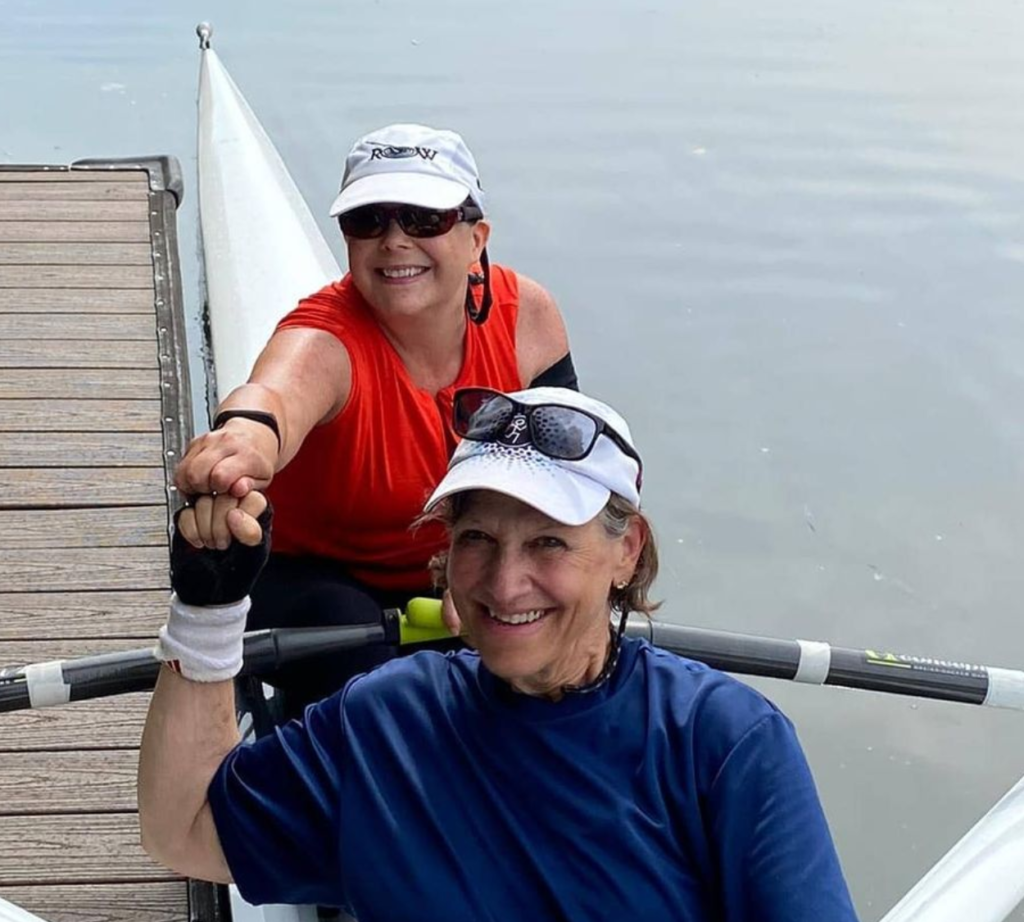
Recovery on Water, the rowing nonprofit that fosters an active, supportive environment for breast cancer survivors, was established in 2007, when Sue Ann Glaser of Evanston was diagnosed with the disease and read about a Boston rowing team for cancer patients.
The concept resonated with her. Through a mutual acquaintance, Glaser met Gibbons, then a rowing coach at St. Ignatius College Prep on Chicago’s Near West Side. The two established the organization in a few months, holding the first practice in spring 2008 and competing in its first race in July of that year.
ROW’s original team totaled about a dozen women, said Tara Hoffmann, the organization’s programs manager. As of late September, ROW’s roster was 74 and has had as many as 100 women on its rolls. This summer, the organization recorded its largest ever novice class — 28 new rowers, Hoffman added.
She said a strong correlation exists between exercise and cancer recovery, particularly from breast cancer. The low impact of rowing, its easy scalability, and accessibility to people of all ages make it an ideal fit for women pursuing recovery, Hoffmann said.
“It just does wonders for all the negative things they’re dealing with,” she said, adding that the emotional benefits to women rowers also are profound. “The team aspect of it is huge. It’s amazing what women will go through to get to rowing practice.”
Kids as advocates
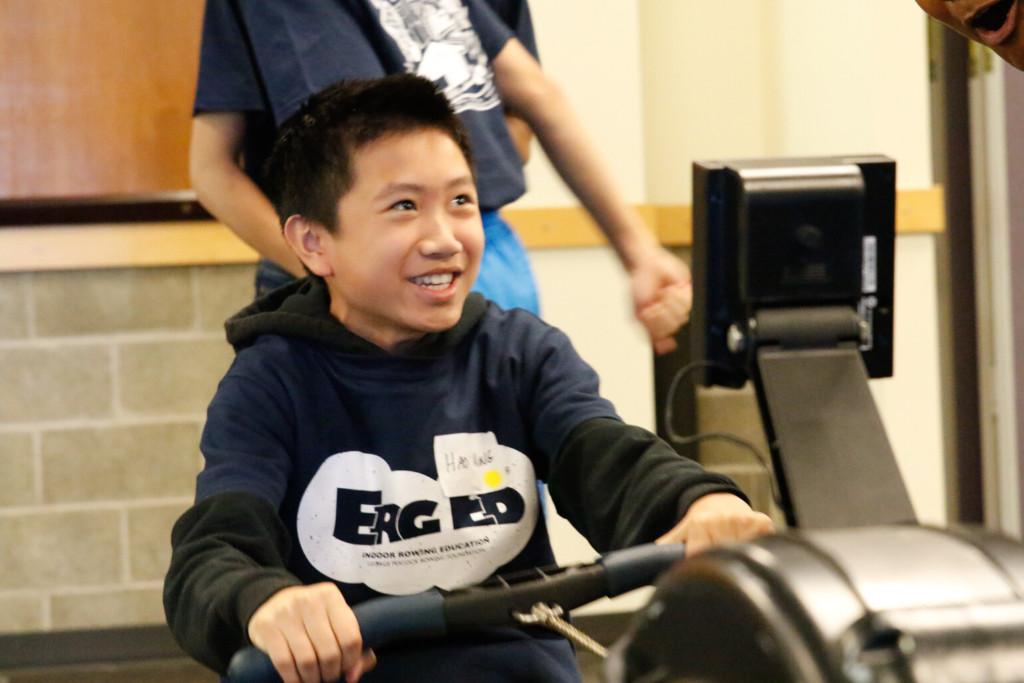
Challenges exist, however.
Water access for rowing is at a premium in the Chicago area, as is space in boathouses.
Culture is another. Given that rowing is viewed as a white, elitist sport, building trust in marginalized communities is vital and can be difficult, said Kayla Cloud, who coordinates student services programs for the Pocock Foundation.
“I think that relationship building as the first step is a pretty crucial piece,” she added, “and something that’s always evolving.”
Providing transportation and offering programs for free or low cost also are important, rowing advocates said. Organizations looking to use rowing as part of a program for academic success must consider tutoring, homework space, perhaps even free meals.
But once some of those barriers are taken down, the sport’s universal appeal contributes to its sustainability, CTC Executive Director Staci Brown said.
“I think the parents see the benefits of rowing,” she said. “They can see something that their kids cannot. And, once the kids get there and see how cool it is, they become their own best advocate of the sport.”
How to Help Support the George Pocock Rowing Foundation
Last spring, Make It Better Media Group matched all donations to the George Pocock Rowing Foundation, up to $10,000, during a matching grant campaign. We are thrilled to share that as part of a matching grant campaign, they raised $162,000. This money will help the Pocock Foundation build and support high-quality programs and facilities that promote access to rowing, excellence in rowing, and use rowing as a means to foster physical activity, health, leadership, and community engagement.
If you are looking to help, please consider donating. With $1,000 they can purchase a rowing machine, a set of oars, a week’s worth of meals at a camp and transportation to the boathouse.
More from Better:
- Grainger Helps Honor Firefighter Hero Quention Curtis by Sponsoring the 2021 Red Cross Firefighter Hero Award
- Kellogg School Center for Nonprofit Management is There to Help People Who Help Their Communities
- The 57th Chicago International Film Festival Is Empowering Community Through Cinematic Storytelling: Donate Now and Your Contribution Will Be Matched

Ted Gregory is a Pulitzer Prize-winning journalist, formerly with the Chicago Tribune, author of four books and editor of a story collection. Now an independent writer, editor and researcher, Ted works primarily for foundations, nonprofits, related social impact organizations and universities. tedcgregory.com
